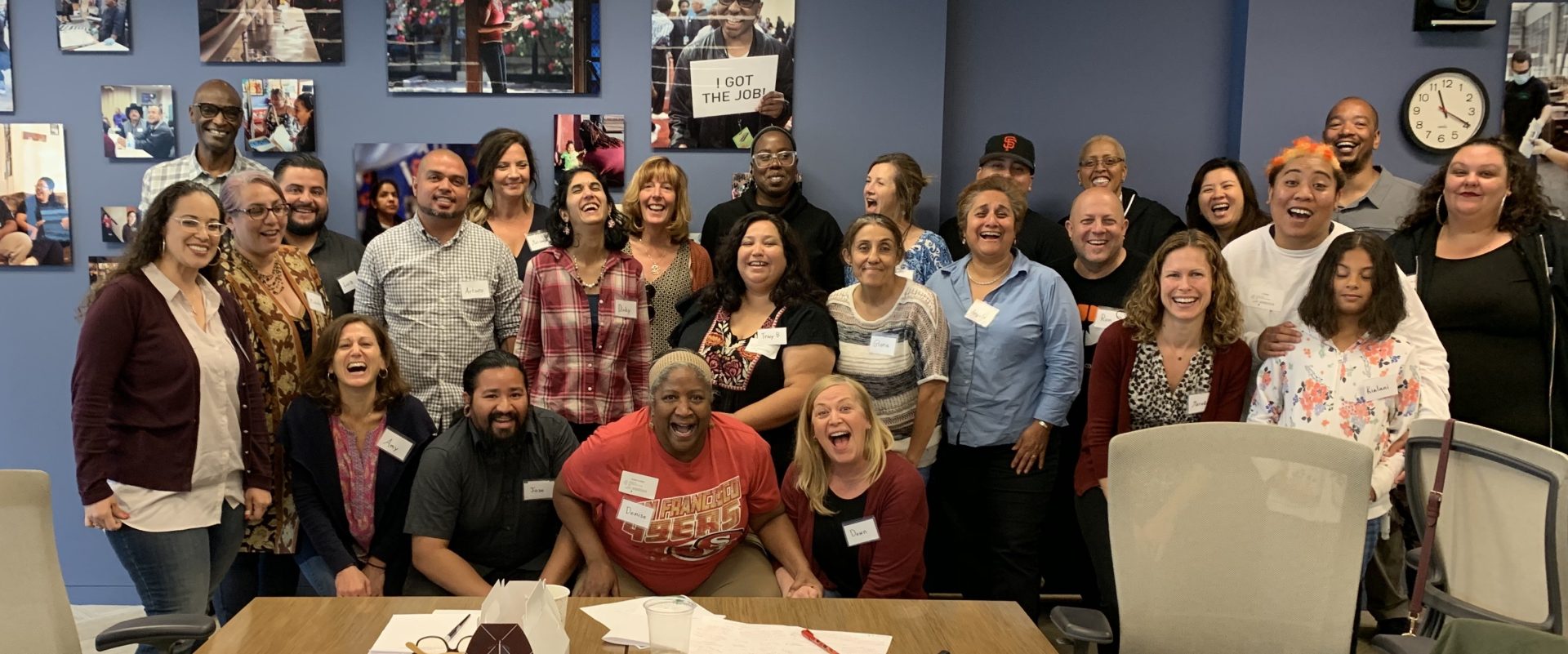San Francisco’s use of nonprofit organizations to provide justice services in collaboration with the public sector has resulted in a robust and responsive local system and provides a replicable way to maximize local resources. In this model, the justice systems provide oversight and management of local programming through a system of accountability and transparency.
Effective local justice systems must demonstrate accountability, flexibility, innovation, integration, and individualization of services. A public/nonprofit partnership, engaging community-based organizations (CBOs) to provide a continuum of justice services, can enhance these qualities.
Nonprofit Model Partnership
San Francisco model
In San Francisco, CJCJ and other local non-profit organizations have collaborated with the county to successfully improve outcomes for justice-involved youths and adults. Over the past 25 years, San Francisco has developed the role of CBOs in justice system service provision to promote diversity and innovation. Through a competitive process, government stakeholders ensure that best practice programs are developed and supported, and through collaboration, CBOs seamlessly deliver a full spectrum of services to clients. As a result, several coalitions have formed to efficiently communicate and build relationships across service sectors.
Juvenile Justice Providers Association
Founded in 2004, the Juvenile Justice Providers Association (JJPA) is a consortium of CBOs in San Francisco that meet regularly to coordinate services, hold meetings with the probation department and other stakeholders, and work to provide a comprehensive, coordinated, and cohesive service delivery system. As the primary service providers in San Francisco, the JJPA plays an important role in local policymaking and has a strong voice in the budgetary process. JJPA demonstrates that the nonprofit sector can play an important and often necessary role in cultivating systems change.
As San Francisco adopted the public/nonprofit partnership model of juvenile justice service provision and radically reduced its use of incarceration, data from the Department of Justice show that the city’s youth crime of every type plummeted to the lowest levels ever reliably recorded.
San Francisco has also applied this approach to the adult criminal justice system with positive results (see CJCJ’s No Violence Alliance (NoVA). San Francisco’s collaborative approach to service provision that promotes community involvement can be replicated in other local jurisdictions.
To read more about the San Francisco model, read Emerging from Darkness: Reinventing San Francisco’s Juvenile Justice System, Stanford Law & Policy Review, 1995 – 96, Vol. 7:1.
To apply for technical assistance for replication in your jurisdiction or for more information, please contact:
Daniel Macallair Executive Director Center on Juvenile and Criminal Justice 424 Guerrero Street, Suite A San Francisco, CA 94110 415−621−5661 ext. 107 dmacallair@cjcj.org
